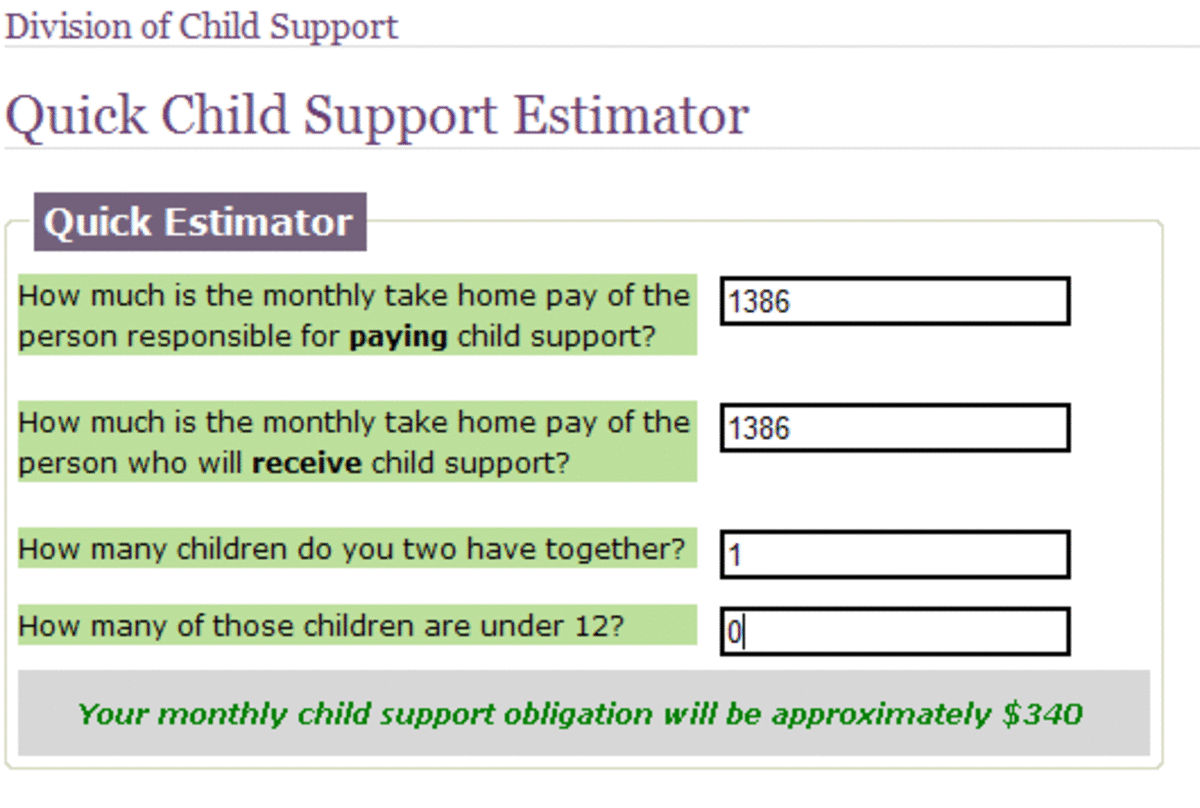Ways to Deal with a Breakup

Coping with a Break Up Ain't Easy, So Make it Worthwhile
"How could it have happened? We weren't supposed to break up! Everything used to be so good and even though there were some problems, we could have worked them out. Couldn't we? We don't have to separate or divorce if only we...."
The news hit you like a ton of bricks. Your significant other - husband, wife, boyfriend or girlfriend - has announced an end to something that has meant the world to you for... how long? Months, years, a couple of decades?
The effects can be devastating on many levels. You may own property together, have children to consider, or have mutual friends who are going to be affected by the news. Emotional effects can be even worse. Who can we talk to when it seems they just don't understand? You feel too depressed to shower, too ugly to go out with those puffy red eyes that feel gritty from all those salty tears, and too defeated to even think about dating again.
It might be hard to imagine a day when you'll feel better, but if you follow these tips, you'll find it easier and faster to recover from your breakup than you might have thought possible.
How to Cope with a Breakup
It's never easy to recover from a bad breakup or an unexpected one. Even if you've anticipated it, the changes it can wreak upon your life may force you to deal with feelings and situations you didn't expect.
Nonetheless, it's here, and you have to get through it, painful as it is. Breakups aren't terribly different from losing a loved one to death, except people don't send condolence cards and bake lasagnas for you. They don't seem to understand how shaken up you feel, but your sadness may be affecting your work, your mental attitude, and your ability to trust and love others.
In order to emerge stronger from your break up, it's important to do four things:
- Let yourself grieve for your loss
- Assign meaning
- Gain wisdom
- Start over
If you skip even one of these steps, you'll have more emotional baggage than you had when you got into the relationship that has ended. By completing all four, you'll be better equipped for problems that come your way in the future - whether or not they involve a new romance.
5 Stages of Grief
Grief Symptoms & Why You Need to Grieve
Although you might normally think of grief as something that happens when people die, the word "grief" refers to the internal feelings we experience over a significant loss. When that loss does involve death, there's usually an outward demonstration of grief known as mourning, which is absent from our grief process when we've faced failure or rejection in a relationship.
The video at the right will give you a glimpse of the grief process as a little girl goes through all five stages of grief after her pet goldfish dies. Just as you've lost someone who hasn't died, people can grieve other losses that aren't people, like this girl's fish, or even treasured items.
The five stages of grief are well-known to mental health counselors, who will tell you that grief is a normal response to breaking up. It's healthy to let ourselves feel and process the symptoms of grief:
- Numbness and shock aren't a formal step of the grieving process, but these feelings come and go throughout the grieving process. It may feel almost like relief from some of the emotions that can be overwhelming.
- Denial over the relationship's failure and your own contributions to it are normal. You may have felt like your ex will come crawling back to you. You might think that you were blameless in the breakup. You may focus on your ex's flaws and deny that there were many things that once made you believe he or she was a great person.
- Anger may be the most noticeable stage and symptom of grief. You may feel rage over being misunderstood, poorly treated, or abandoned. You might fantasize revenge. Although most of your anger is directed toward your ex, many people direct their anger inward, too, and blame themselves for the relationship's failure. Angry emotions can feel too big to keep inside, and you may find yourself impatient and snappish with people around you at times.
- Bargaining is another normal grieving symptom. You may try to bargain with your ex to get him or her to return to the relationship. You might attempt to bargain with God to remove your pain. You mayeven bargain with yourself at times.
- Depression is more than just sad feelings. You may notice changes in your appetite, your ability to get to sleep, stay asleep, or to wake up. Your ability to concentrate or remember simple information may be challenged temporarily. These symptoms, like the others, are normal in the grieving process and shouldn't be avoided, but if they continue for more than a few weeks, you may want to consider consulting a professional counselor.
- Acceptance, the final step of the grief process, doesn't arrive all at once. You may feel fine one day, and the next you find yourself bargaining again. These stages aren't completely linear, but if you allow yourself to experience the feelings that come your way, within a month or so you'll reach a basic serenity that lets you carry on with your life in a healthier way.
Well-intentioned friends may urge you to get out of the house and meet new people, to "forget about" your ex, and to stay too busy to think about your loss. Even though they mean well, delayed grief will eventually come back to haunt you. Also known as "postponed" grief, our unresolved feelings can contribute to anxiety disorders, depressions, and physical ailments like frequent headaches or high blood-pressure, sometimes long after the event that triggered our grief feelings. The one piece of advice you should listen to is to avoid unnecessary contact with your ex, since your unresolved feelings and interactions will hamper the grieving process.
Grief and Your Break Up
Which stage are you in right now?
Use Grief to Journal Your Way to Wisdom
Treat yourself to a blank journal that has an image that appeals to you. When you hold your journal, it will be your first gift to yourself as a newly single person, and it signifies the way you want to feel again one day.
Start keeping a journal as soon as you recognize feelings of grief or anticipate a major loss. Avoid spilling your guts on the Internet via social media. Write when you're sober and drug-free. You don't have to know what to say before you begin, because you can start by simply putting today's date on the page and starting with "Right now, I feel..." and complete the sentence. Explain why you feel that way. Acknowledge that stages of grief may go back and forth many times along the way, as if you take two steps forward, one back, one forward, two back and three forward again. Trust that you're making progress, though, because you are!
If you dislike writing, set a timer for ten minutes and stop when it rings. If you enjoy writing, continue for as long as you'd like. You can write once a day, five times a day, or just when you feel strong negative feelings. Don't worry that you might neglect it, because when you no longer need it, it's a sign that you're feeling better and moving forward.
Assign Meaning to Your Relationship and Breakup Experience
You may have heard that a "positive mental attitude" (PMA) helps people feel happier and be more successful at reaching their goals, but finding a PMA toward traumatic events can prove to be a real challenge. By now, you've captured your worst moments in your journal. Get ready for those ugly memories to change your life for the better, because you're going to use them to develop a PMA about your breakup and the relationship that led to it.
Playwright George Bernard Shaw said, "If you teach a man anything, he will never learn." The secret to developing a positive outlook isn't to learn what bad things have happened to you, but to change what they mean to you! Steven Stosny, Ph.D, says that focusing too much on why bad things happen increases pain. In his outstanding article Anger in the Age of Entitlement, Stosny describes how we try to regain control in our lives by doing exactly the wrong things!
If you can channel all the pain you're feeling right now into something positive, you'll be a better person if you decide to date again. You'll like yourself better and have more confidence even if you never want to think about love again. (Yes, you'll change your mind eventually, but it might take some time!)
From time to time, instead of writing in your journal, re-read an entry or two that you wrote previously. Do you remember how you felt when you wrote it? Now consider what you didn't say, what you've learned since then, and how you can use your new awareness to create a better you and a better life for yourself. Ask yourself:
- Was I being fair to everyone when I wrote this?
- Was I honest with myself?
- Is there another way of interpreting the events I wrote about?
- Was I wrong about anything?
- What have I learned since I wrote this?
- Am I really as bad or as good as I believed I was?
- Was my partner really as bad or good as I wrote?
Make a new journal entry that begins with "Upon reflection, I think that...." Strive to find the ways you can turn those horrible experiences into learning opportunities. What will you do differently in the future? Develop your PMA as you write.
As before, you can set a time limit if you'd like. Repeat this process for each journal entry you made while you grieved. Once you've done this, you can put your journal away and come back to it in the future or formally celebrate the end of your grief process by discarding it, ripping the pages out, or burning it (safely, of course.)
Gain Wisdom and Go Forth
No matter how long you were in your relationship, the acute stages of the grieving process should last no more than two or three months for most people. If you haven't arrived at acceptance of your breakup within six months, you may be experiencing something known as "complicated" grief that is considered to be a clinical disorder. If this happens to you, locate a grief therapist to help you get unstuck.
You may find that it can take much longer than six months to adjust to a new standard of living, or to be ready to date again. These aren't symptoms of grief and are normal experiences, especially after a divorce that involved court proceedings to separate property or resolve child custody and support matters.
However, if you've completed your journal and re-written the meaning of events you've endured, you'll reach acceptance with valuable wisdom that will help you avoid repeating your behaviors that contributed to problems in your relationship. You'll be better able to recognize red flags in potential partners when you start dating again. Most importantly, you will have learned that you're a survivor who can't be defeated after all.
More on Grieving
- Relationships Ending: The Five Stages of Grief After...
Anyone who has experienced the death of a loved one and who has dealt with the pain of that experience by seeing a counselor or working through self-help workbooks will tell you that there are five stages of grief that you go through as you deal... - Grief ~ How Long Does It Last?
I am grieving. Every morning I wake up to the knowledge that my husband is not beside me. All through the day I work from home, alone, on the creations from the Memory Quilts business I have started, and my time awake would be silent if not for...





